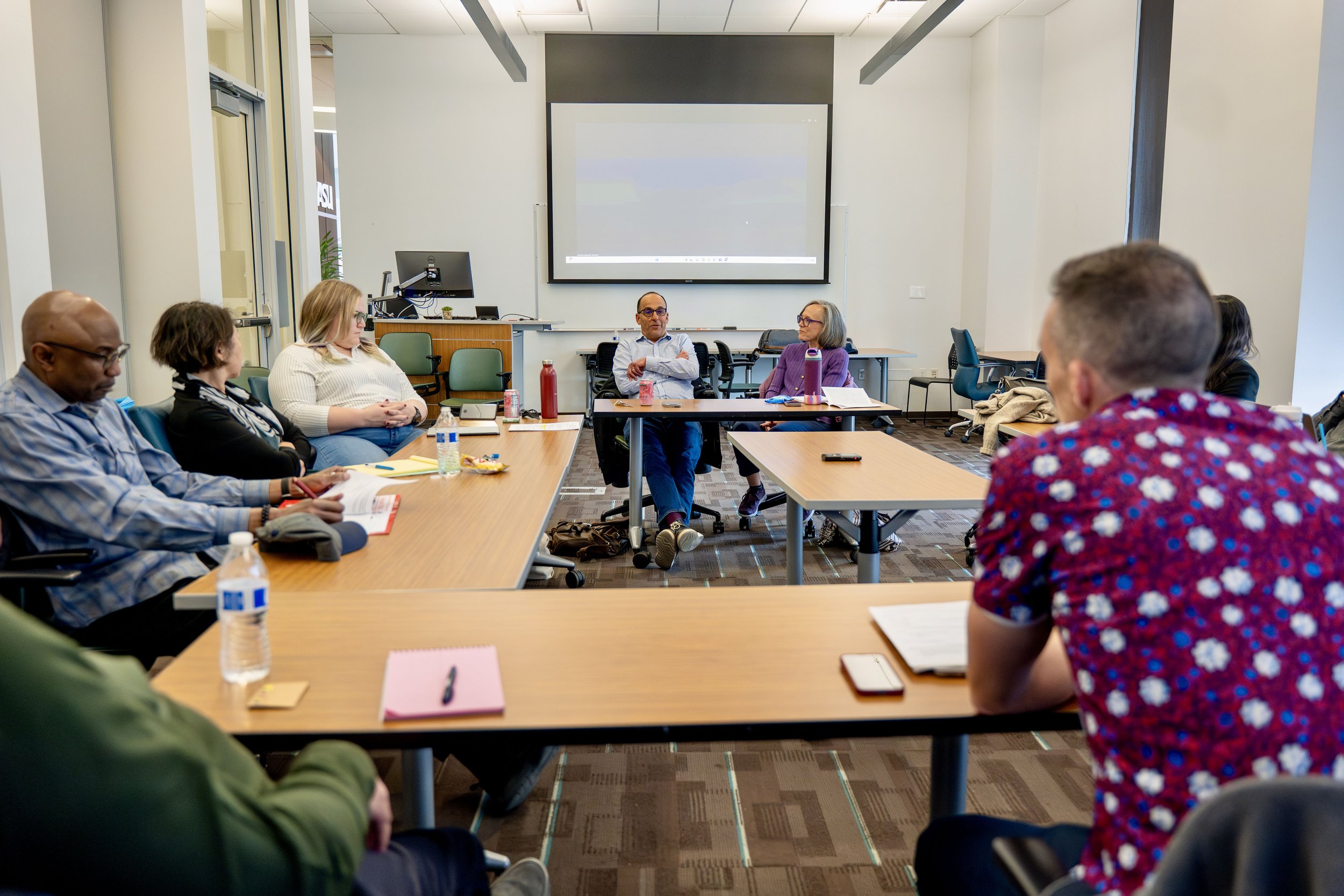
Phoenix, AZ | 2025
CAB In-Person Meeting
The Supporting Dementia Caregivers After Death Community Advisory Board (CAB) held its second in-person series of meetings at Arizona State University. We explored how people think about their own risk of developing dementia, what motivates or hinders health behavior change, and how to better reach former dementia caregivers for future research. These conversations were grounded in real-world experiences and offered valuable direction for shaping public health strategies and future studies.
Key Discussion Points
🧠 Perceptions of Dementia Risk
How do people think about their chances of developing dementia?
Members shared personal beliefs about their likelihood of developing dementia, with many reflecting on:
Family history
Personal health practices
Emotional readiness to plan for a possible dementia diagnosis
🎯 Control Over Dementia Risk
Do people feel they can influence their dementia risk?
Prevention strategies were seen as helpful by some members (e.g., healthy sleep, social engagement)
Genetics were emphasized by some and others expressed uncertainty about controlling risk
🚧 Challenges to Behavior Change
What gets in the way of making healthy changes?
Unclear guidance
Lack of relatable examples
Slow or invisible progress from health improvements
👥 Who Inspires Behavior Change
Who can deliver trustworthy messages?
The CAB emphasized that people are more likely to change behavior when hearing from someone they trust:
Peers with lived experience
Trusted messengers in their communities
Evidence-based sources
Professionals offering specific, nonjudgmental advice
📣 Strategies for Promoting Dementia Risk Prevention
When and how should we reach people?
Members emphasized the importance of early outreach with messages about dementia and preventable risk factors like social isolation and poor mental health. Suggested approaches included:
Ads and QR codes on public transportation
Billboards in everyday public spaces
Public health campaigns modeled after HIV outreach
💡 Ideas for Recruiting Former Dementia Caregivers into Research
How can we connect with former dementia caregivers?
Members recommended:
Electronic health records to identify eligible participants
Recruitment flyers through primary care and neurology clinics
Public events, such as county and state fairs, to engage community members with giveaways (e.g., water bottles, fidget toys, stress balls)
Caregiver support groups, while also considering the many who never attend them
The CAB also raised important ethical and legal questions around participant outreach:
Opt-in vs. opt-out recruitment
Minimizing participant burden by doing most of the outreach work ourselves
Why This Matters
We plan to leverage these insights to develop and pilot an intervention for former dementia caregivers, who may be at increased risk for cognitive decline.
CAB members’ perspectives are shaping research that is:
Grounded in lived experience
Improving long-term caregiver well-being
Reducing the broader societal burden of dementia







